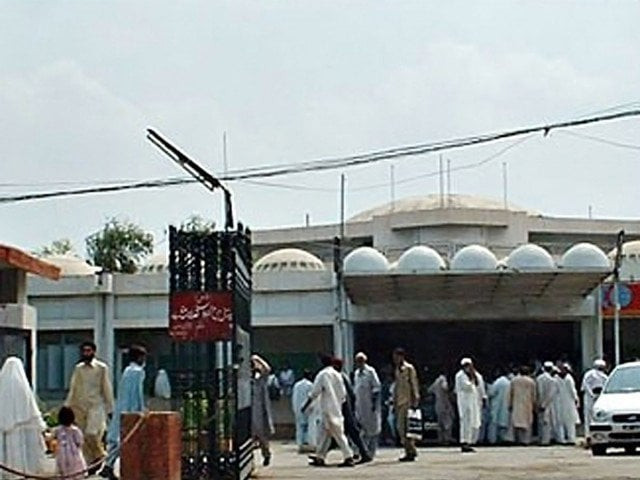Expanding horizon: Khyber hospital gets first-ever equipment for children’s surgeries
Minister also inaugurates 24-hour outpatient dept service at KTH

The head of medicine department, Professor Dr Muhammad Humayun, stressed on further strengthening the diagnostic services and having a specialised staff, adding there were five medical units but the influx of patients was high. PHOTO: FILE
“Tertiary care hospitals are for specialised services, not for the treatment of flu and cough,” Tarakai said. “We are providing the equipment on war footings, not only to reduce the burden [on tertiary care hospitals] but also to enable doctors to give maximum time to patients.”
The minister was speaking on Friday at the inaugural ceremony of the province’s first-ever paediatric laparoscope — image intensifier for orthopaedic surgeries — free around-the-clock outpatient department, introduction of spine surgery and arthroscopic procedure at Khyber Teaching Hospital (KTH).

Tarakai believed gadgets made life easy and development in the field of health was compelling them to forget the past methods. He added innovations in medical sciences were making impossible possible now.
He said there were a number of things to do.
“Millions were spent on construction of buildings, but not on equipment and training of staff,” he said.
He added the most important objective of the medical teaching institutions act was to help hospital administrations solve their issues on their own, without sending requests to the health ministry.
Diagnostic service was the basic and important factor in the delivery of health service, the minister said. The basic health units will soon be equipped with CT scans and MRI machines, he added, which will reduce burden on tertiary care hospitals.
“It will be done as public-private partnership since people want to invest, but we will have to own the system since the health service is now on the right track,” Tarakai said.
He added a pharmacy will soon be functional at KTH.
Needs for surgeries
Earlier, Professor Dr Inayatur Rahman, incharge of the paediatric unit, briefed participants about the paediatric laparoscopic surgery.
He said the old system of surgery was totally changed and 95% of the surgeries were carried out through minimal invasive procedure. He added K-P took the lead to start paediatric laparoscopic surgery, which will not only offer services to people in K-P, but residents of the tribal areas as well.
According to a website, WebMD, in laparoscopy the surgeon inserts a lighted viewing instrument called a laparoscope through small incision, instead of making a large abdominal incision.
Associate Professor Dr Muhammad Ayaz explained the requirement of separate spinal surgery unit, saying 1,676 patients were listed for it in 2015.
On the occasion, the head of the orthopaedic department, Professor Dr Zahid Askar, said with the latest technology and equipment, patients will quickly recover with minimum wound and having to stay for a shorter duration while at the facility. He added the department has expertise and soon will be able to proceed for paediatric orthopaedic surgery.
The head of medicine department, Professor Dr Muhammad Humayun, stressed on further strengthening the diagnostic services and having a specialised staff, adding there were five medical units but the influx of patients was high.
He also emphasised on the purchase of state of the art equipment and stressed on the availability of advance gastroenterologist.
Published in The Express Tribune, September 10th, 2016.













COMMENTS
Comments are moderated and generally will be posted if they are on-topic and not abusive.
For more information, please see our Comments FAQ